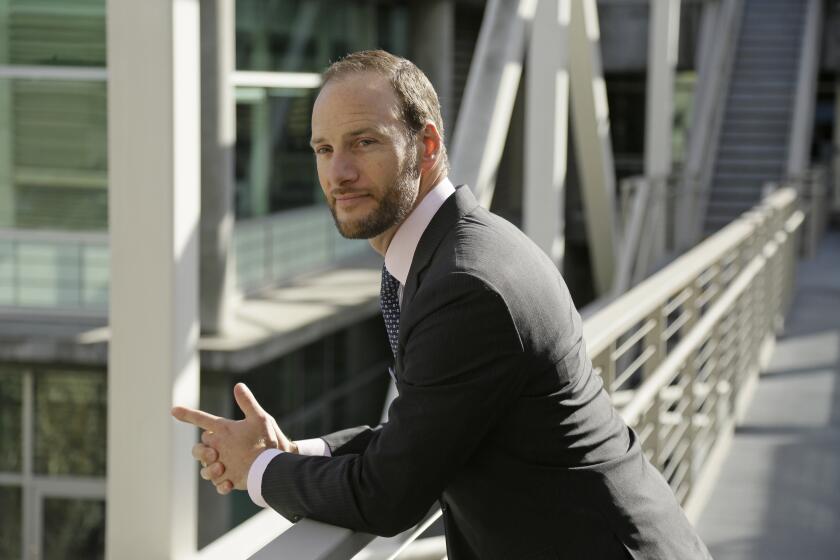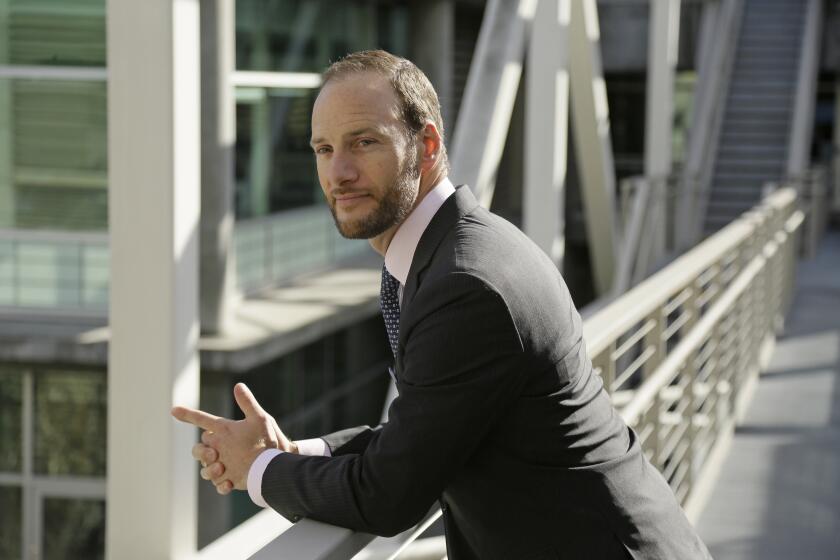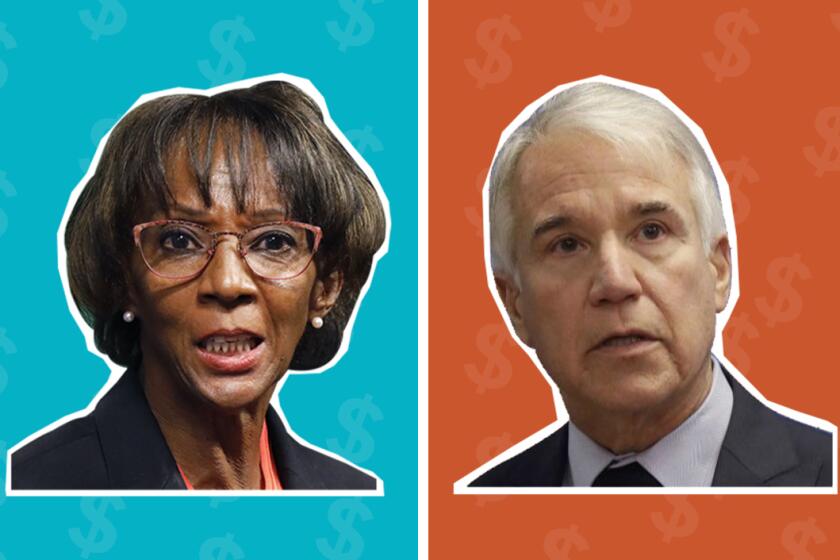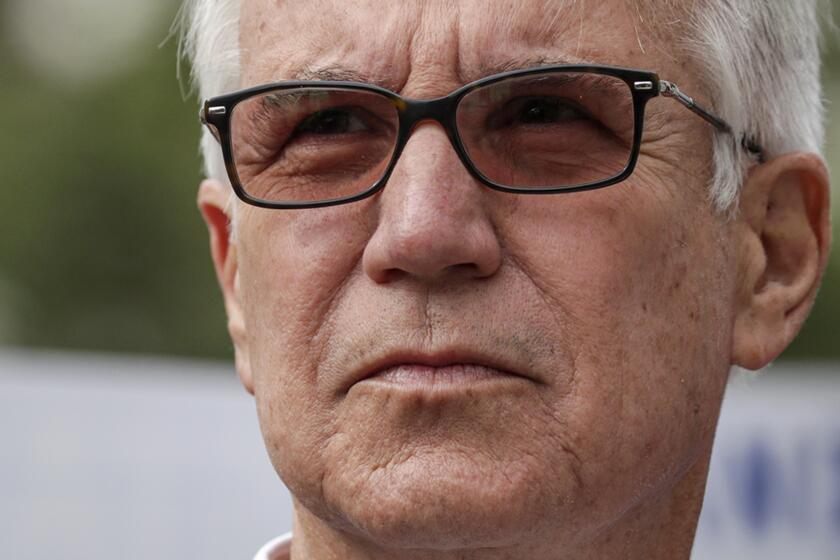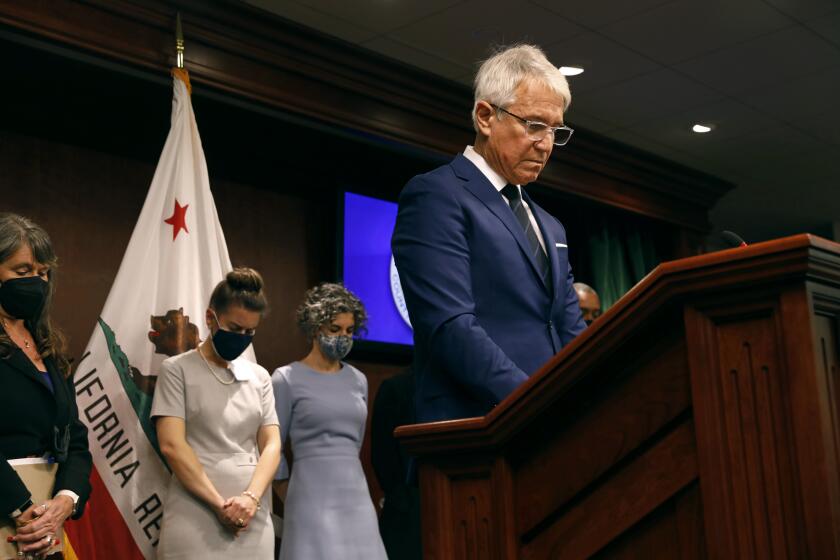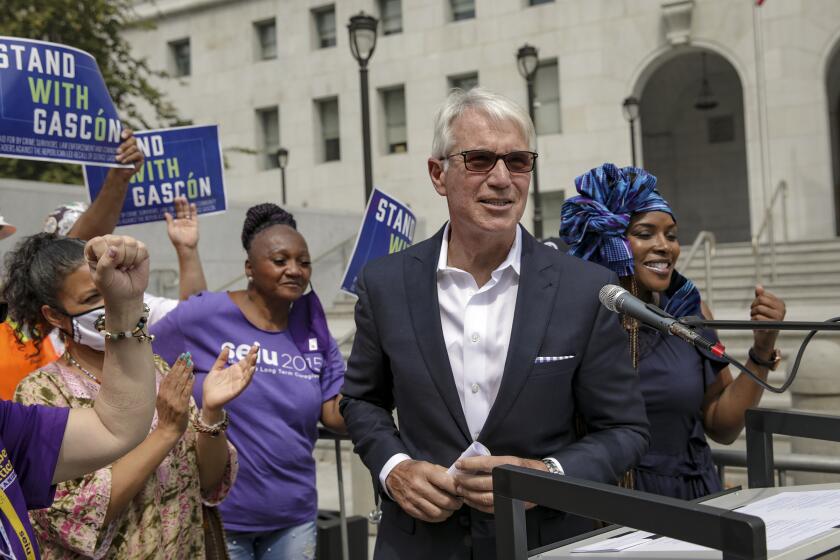Guide to the recall campaign against San Francisco Dist. Atty. Chesa Boudin
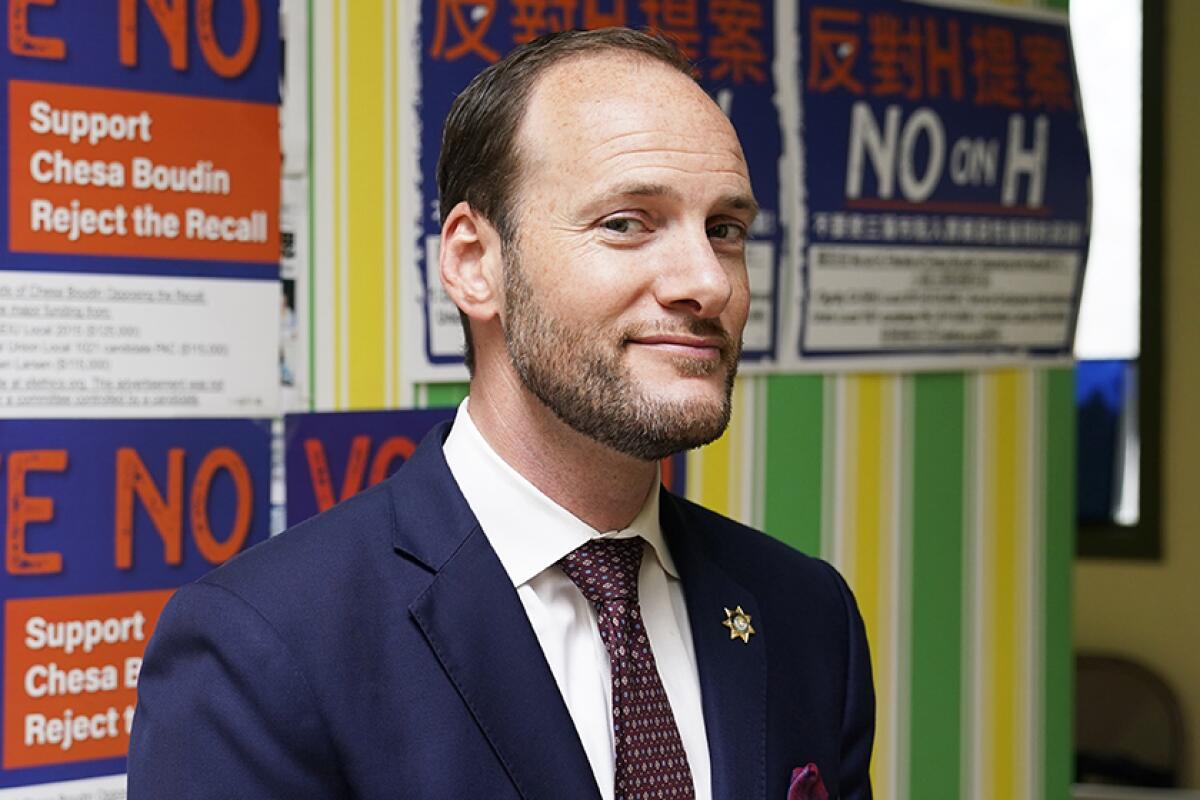
- Share via
San Francisco voters Tuesday will decide whether to recall Dist. Atty. Chesa Boudin, who was elected in 2019 on a platform of criminal justice reform but has faced backlash over crime and homelessness.
What is the recall about?
Boudin’s election was hailed as a major development for the criminal justice reform movement. He has refused to seek the death penalty or try juveniles as adults, significantly reduced the use of sentencing enhancements and sought to push people accused of low-level crimes fueled by drug addiction into treatment instead of a jail cell.
Boudin’s supporters say he has taken meaningful steps to reduce mass incarceration and hold police accountable. A San Francisco police officer this year stood trial for excessive force, for the first time in the city’s history.
Recall backers claim Boudin’s policies have made San Francisco less safe. They have aired ads highlighting shocking videos of smash-and-grab robberies from high-end retailers in Union Square and drug dealing in the Tenderloin neighborhood.
Overall, property and violent crime both dropped by double-digit percentages during Boudin’s first two years in office, city data show. But some types of crime exploded in the same time frame: Burglaries are up 47%, motor vehicle theft increased by 36% and, mirroring a national trend, homicides have risen since 2019 — though the city that year experienced its fewest killings in more than half a century.
Fears about crime and homelessness have trumped the progressive ideals of San Francisco D.A. Chesa Boudin, who’s locked in a bruising recall election.
Who is Chesa Boudin?
Boudin is a Yale-educated Rhodes Scholar who once worked as a translator for Venezuelan socialist President Hugo Chávez.
His parents were members of the radical left-wing group the Weather Underground. They went to prison when Boudin was a child for their roles in a 1981 armed robbery in New York that left three people dead, including two police officers. (His mother, Kathy Boudin, was paroled in 2003 and died of cancer last month. His father, David Gilbert, received parole last year.)
If you can’t make radical change in San Francisco, what future does the progressive prosecutor movement have?
What’s the bigger picture?
California has been a leader in efforts to reform the criminal justice system, including ending cash bail for some defendants and working to overhaul sentencing rules.
Advocates for criminal justice reform have pushed to elect progressive, reform-minded district attorneys, seeing the office as a weak link in efforts to cultivate a more equal justice system and hold police and public officials accountable.
Progressive prosecutors, even those elected by a wide margin, have faced public pressure. The district attorney of Los Angeles County, George Gascón, is facing his second recall attempt in two years.
A push to back progressive district attorney candidates across the U.S. is forcing some law-and-order incumbents to embrace criminal justice reform
Proponents of a push to recall L.A. County Dist. Atty. George Gascón blame him for a dramatic rise in crime. But other factors also have played a role.
After a tumultuous week that saw him backpedal on signature policies, L.A. County D.A. George Gascón’s reform agenda is under more scrutiny than ever.
As they try to recall Los Angeles County Dist. Atty. George Gascón, prosecutors still must carry out the enormous workload of the office. With distrust running high, even mundane tasks get more complicated.
Reading from other publications:
Why California might recall its most progressive prosecutor?
(The Atlantic)
What the national media likely to get wrong about the recall
(San Francisco Chronicle)
In San Francisco, Democrats are at war with themselves over crime
(New York Times)
The limits of San Francisco liberalism?
(New York magazine)
Boudin’s uphill battle
(Washington Post)
The debate over protecting victims
(San Francisco Chronicle)
Video: Breaking down the issues
(NBC Bay Area)
More to Read
Sign up for Essential California
The most important California stories and recommendations in your inbox every morning.
You may occasionally receive promotional content from the Los Angeles Times.
